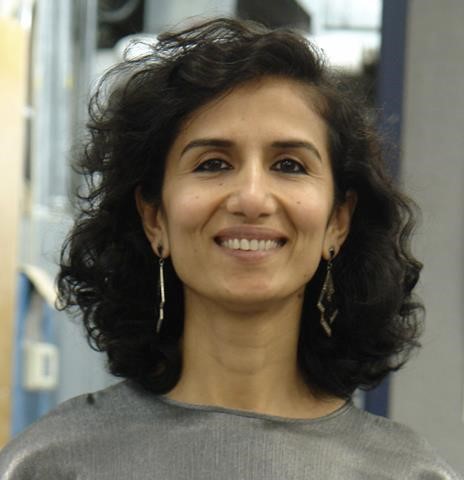Science and Mathematics
Physics Colloquium: How to Enhance Physics by Making it Inclusive
September 29, 2022 at 3:30pm – 4:45pm EDT
Physics Building, 202/204
This event has already occurred. The information may no longer be valid.

The Department of Physics is pleased to welcome Professor Chandralekha Singh for a virtual colloquia presentation.
Chandralekha Singh is a Distinguished Professor in the Department of Physics and Astronomy and the Founding Director of the Discipline-based Science Education Research Center (dB-SERC) at the University of Pittsburgh. She is a Past President of the American Association of Physics Teachers. She obtained her bachelors and masters degrees from the Indian Institute of Technology Kharagpur and her Ph.D. in theoretical condensed matter physics from the University of California Santa Barbara. She was a postdoctoral fellow at the University of Illinois Urbana Champaign, before joining the University of Pittsburgh. She has been conducting research in physics education for more than two decades. She co-led the US team to the International Conference on Women in Physics in Birmingham UK in 2017. She is a Fellow of the American Physical Society, American Association for the Advancement of Science and American Association of Physics Teachers.
Abstract
Instructors often only focus on content knowledge and skills to improve student engagement and learning in physics courses. However, students’ sense-of-belonging, self-efficacy and mindset can also play an important role in their engagement and success in physics. For example, students’ sense of belonging in a physics class, their self-efficacy, and views about whether intelligence in physics is “fixed” or “malleable” can affect engagement and learning. These types of concerns can especially impact the learning outcomes of women and racial/ethnic minority students and stereotype threats can exacerbate these issues. I will discuss prior research studies that show how different types of social psychological interventions (e.g., social belonging and growth mindset) have improved the motivation and learning outcomes of all students, especially women and underrepresented minorities in STEM fields. These interventions include providing data to students about how intelligence is malleable and one can become an expert in a discipline by working hard in a deliberate manner, sharing with examples of testimonials of past students from diverse backgrounds, who struggled initially but then succeeded by working hard and using deliberate approaches. We will discuss how ecological belonging interventions can be adapted and implemented in physics classes to make them more equitable and inclusive. These types of interventions are short even though they have the potential to impact student outcomes significantly—especially for underrepresented students in physics classes. We will present data from large introductory physics courses showing the efficacy of such interventions. We will also discuss evidence-based inclusive mentoring approaches that can enhance student outcomes significantly.
This event was published on September 12, 2022.
Event Details
- Category
- Science and Mathematics
- Type
- Talks
- Region
- Campus
- Open to
- Alumni,
- Current Students,
- Faculty
- Organizer
- CAS-Department of Physics
- Contact
- Yudaisy Salomon Sargenton
phyadmin@syr.edu
3154433901
- Accessibility
- Contact Yudaisy Salomon Sargenton to request accommodations
